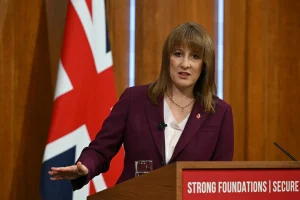The House of Lords Constitution Committee recently published a report on ‘The invoking of Article 50’ in which it states that Government should not trigger Article 50 without consulting Parliament. The Committee says it would be ‘constitutionally inappropriate’ and would set ‘a disturbing precedent’ for the Government to act on the referendum without explicit parliamentary approval.
The Committee says that the referendum result was clear, and that Parliament is now responsible for ensuring the Government implements that result and takes forward Brexit negotiations in a way that achieves the best possible outcome for the UK as a whole. Parliament and the Government will need to work together with a mutual respect for each party’s constitutional role—and that starts with the Parliamentary involvement and assent for the invoking of Article 50.
The report points out that although the EU referendum was, in legal terms, advisory, it was accompanied by a clear undertaking by the Government, based on a manifesto commitment, to implement the decision reached in the referendum. In the UK’s representative democracy, it should be Parliament which takes the decision to act following the referendum. The Committee therefore states that Parliament should play a central role in the decision to trigger Article 50, and have a key role scrutinising both the Brexit negotiations and in approving the final deal between the UK and EU.
In considering Article 50, the Committee conclude that it is unclear whether Article 50, once triggered, could be unilaterally reversed by the UK. The report therefore states that Parliament should act on the assumption that triggering Article 50 would be irreversible, and that Article 50 should be triggered "only when it is in the UK’s best interests to begin the formal two-year negotiation process."
Commenting Lord Lang of Monkton, Chairman of the Committee, said:
"The referendum result was clear and it is right that the Government are preparing to take Britain out of the EU. However, our constitution is built on the principle of parliamentary sovereignty and the decision to act following the referendum should be taken by Parliament.
"Parliament should be asked to approve the decision to trigger Article 50—a decision which will start the formal process of the UK leaving the EU and set a deadline for the UK’s exit.
"Parliament’s assent could be sought by means of legislation or through resolutions tabled in both Houses of Parliament. An Act of Parliament would give greater legal certainty and could be used to enshrine the "constitutional requirements" required by Article 50, allowing for the setting of advantageous pre-conditions regarding the exit negotiations to be met before Article 50 could be triggered. A resolution could be simpler and quicker to secure but might not provide the same watertight legal authority. We consider that either would be a constitutionally acceptable means of securing parliamentary approval for the triggering of Article 50.
"Parliament and the Government will need to work together to ensure that the UK achieves the best possible outcome when it withdraws from the EU. It is therefore important that Parliament plays a key role in scrutinising the Brexit negotiations once Article 50 is triggered. We all want the negotiations to produce a deal that works for both the UK and the EU, and Parliament must be involved in holding the Government to account in delivering that."
(Source: House of Lords)




















